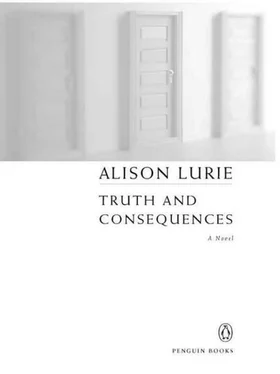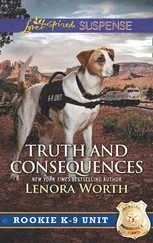It was the first, but not the only intimation Alan had had in the last week that the public and larger disaster had somehow made his private one seem petty and egocentric. It was as if it were willfully selfish of him to have a bad back at a time like this, and he ought to shape up and forget about it. No one had said this directly, but Alan imagined he could see it in people’s faces, for example in the face of Delia Delaney.
It had been stupid of him to think that Delia was as interested in him as he was in her. In the past he had been her equal: and at the party on Labor Day she had seemed to see him this way still, to recognize that they were two of a kind, both of them unique and superior beings. Afterward he had been inspired to take out his drawings of architectural follies and work on them, and also to restart his exercise program.
But in fact Delia’s warmth and encouragement had probably been merely charm and good manners. Even before the disaster he had seen almost nothing more of her. Her door at the Center was usually shut, with a DO NOT DISTURB sign, presumably stolen from some hotel, on the doorknob. Once the door had been open and he had paused in it to say hello, but Delia was on the phone and merely smiled and fanned the air with one smooth white arm, in the gesture of someone waving away distraction. If he had been her equal, she would not have done that. But he was not her equal anymore: he was a semi-invalid has-been, while she was still beautiful and famous and well. Since then, his impulse to work had gradually faded. When he had looked at his drawings this morning they seemed mere piles of scribbled irrelevant paper, and his mind was empty and dark.
Next week Alan would have to give his useless postponed lecture, to which probably almost no one would come. If he could have canceled it he would have done so. Religious architecture no longer interested him, and he was sure it would interest his students and colleagues even less. Jane had tried to convince him that this was not true, but her effort, though no doubt well-intentioned, had ended yesterday in one of the most unpleasant conversations they had ever had.
In fact, things had been bad between them from the afternoon of September 11, when Jane was unbearably late picking him up, because she was consoling a campus acquaintance whose brother-in-law worked in the World Trade Center. She had let Alan stand there for half an hour in front of the building, in increasingly severe pain, so that finally he had to lie down on the dusty grass next to the driveway. When he asked why she hadn’t at least called him, Jane replied that she had tried, twice, but nobody had answered the phone. (She was probably telling the truth, he admitted now. The Fellows had been asked to answer after four rings, in case Susie was away from her desk, but Alan suspected that they did not always do so, and in fact he himself never did so. For a while Selma Schmidt had taken on this task, but then she had rebelled. “I am not a switchboard operator,” she had protested, “but because I am a female the rest of you assume that is my job.”)
“Even so,” Alan had told Jane, “you could have driven around to the Center and told me you’d be late. You know it just about kills me to stand up for more than fifteen minutes at a time.”
“I’m awfully sorry,” Jane had said, with an unusually cool smile. “But you know, darling, you aren’t dead, and Becca’s sister’s husband probably is.”
Well, the way I feel now, I wish I were dead instead of him, Alan had thought, but did not say.
At supper the night before last, when he spoke again of canceling his lecture or at least postponing it further, Jane had pointed out that the posters had already gone up, and said she agreed with Bill Laird that the lecture should be given as soon as possible, and that it would help to raise morale at the Center and on campus. Alan had said that was ridiculous; that essentially his topic, and he, were irrelevant in the present situation. She was treating him as if he were a small child, he said, she was fibbing to make him feel better.
Jane, setting down her mug of Sunburst C herb tea, had wearily and indignantly denied this, and in turn suggested that in the present situation it was important not to give in to defeatism and self-pity. Alan had then, against his better judgment, suggested that considering recent world events, people who thought like her were either fools or hypocrites. He had accused these theoretical people of a blinkered optimism, and cast doubt on their ability to see the world as it really was. Jane had choked up with tears, shoved her half-eaten slice of apple pie away, and run out of the house into the vegetable garden, where for the next half hour she vindictively pulled up carrots in the gathering dusk. Later that evening they had exchanged formal apologies, but the phrases “defeatism and self-pity” and “fools or hypocrites” continued to reverberate through the house like the distant echoes of an ugly gong, and communication between them had remained tense ever since.
Over the past year Alan had in fact sometimes found Jane’s optimism foolish or hypocritical, though at times comforting. Now it seemed almost disgusting. He also found himself and his continued existence disgusting. Thousands of strong, healthy, productive people had died in the disaster, while he, an aging unproductive invalid, survived. He suspected that rules had been bent and letters written to get him this fellowship, to provide him with a generous income and a beautiful place to work, but the beauty meant nothing to him and he was not working. Also, every day when he entered or left the Center he was reminded of the irony involved. Five years ago, when he had been consulted about the remodeling of the Unger mansion, he had been impatient at learning of the handicap access requirements for all new university construction. He had grumbled about the need to install a ramp to the back door and an elevator that spoiled the classically Victorian lines of the hall. The jealous gods, who were clearly on the side of the handicapped (after all, Hephaestus, patron of architects, was lame himself), had heard him, and now Alan used this authorized equipment every day.
As, gazing out the window of his office and groaning from time to time with pain, he revolved these unpleasant thoughts and memories, there was a knock on his half-closed door.
“Yes?” He turned. Delia Delaney stood there in a gauzy lavender dress and sandals, with her hair in a long braid. “Oh, hello.”
“Please, you’ve got to help me,” she said in a tremulous half whisper. “I need to hide somewhere.”
“You need to hide?” Alan repeated. “From what?”
“It’s this awful reporter from the local newspaper. He’s pursuing me for a statement about the World Trade Center.” She put a soft white trembling hand on his arm. “Please, can I stay here, just for a little while?”
“Well—yes, all right.”
“Oh, thank you.” Delia came into the room and shut the door behind her, letting out a deep soft sigh that smelled of oranges. “He’s downstairs right now. I can’t bear to see him. Besides, he’s brought a photographer, and I look frightful today.”
This last statement was, if not a lie, a delusion. With her thick golden braid, from which gilt tendrils like sparks escaped in every direction, her flushed face, and her wide, pale gray eyes, Delia looked like a frightened but beautiful schoolgirl.
“That’s them now,” she whispered, gesturing toward the hall, from which steps and loud voices could be heard, followed by knocking and shouts:
“Ms. Delaney? Ms. Delaney? Are you in there?”
“Please, could you lock your door?” Delia whispered.
“Okay.” As quietly as he could manage, Alan crossed the room and turned the key.
Читать дальше







![Кэмерон Доки - Правда и ее последствия[Truth and Consequences]](/books/79610/kemeron-doki-pravda-i-ee-posledstviya-truth-and-con-thumb.webp)




